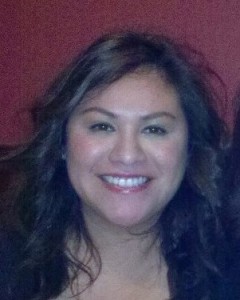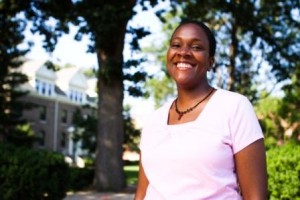Jeff Ondrey is the Director of Nursing Home Operations for Heritage Ministries and is a member of First Covenant Church in Jamestown NY. He recently completed his tenure of service as a lay member of the CBGE.
Gilbert Bilezikian, Beyond Sex Roles: What the Bible Says About a Woman’s Place in Church and Family. Baker Books, 1985.
Bilezikian’s thesis is that God created men and women as equals. Although woman came from man, man is born of woman. Any inequalities or hierarchical relationship between men and women is the result of the fall. Any biblical interpretation with contrary conclusions is also the outcome of or influence of the fallen state (which, incidentally, was not Eve’s (i.e., woman’s) fault). Jesus came to restore all that was destroyed by the fall of the first man. In no instance did Jesus establish a dominant, hierarchical relationship between men and women. Rather, in every instance, Jesus displayed the utmost respect and compassion for women.
This majority of the book is dedicated to analyzing and clarifying these viewpoints. Throughout the book, primarily in the many footnotes, Bilezikian points out the flaws in the interpretations of James B. Hurley’s Men and Women in Biblical Perspective, which Bilezikian uses as a representative work of the alternative viewpoint that men hold a dominant or authoritarian role over women and thus women are to be submissive and subordinate to men. In views such as Hurley’s this dominance/submission relationship is prescribed particularly in the church and most particularly in the leadership or pastorate of the church. Bilezikian quite forcefully debunks each of Hurley’s assertions with consistent and thorough biblical exegesis.
Bilezikian’s introduction lays out the foundation for the book and in summary God’s revelation of himself through the continuum of human Creation-Fall- Redemption.
Chapter 1 deals with the creation story as revealed in Genesis 1 & 2. In creation God did not establish a hierarchy of God over man over woman over nature; the “hierarchy” is rather God over humanity, as man & woman, over nature: God is sovereign over humans and humans were given dominion over the earth. Bilezikian develops the scriptural basis for the equality of men and women and the oneness of the marital relationship between Adam and Eve throughout Genesis 2. God’s created ideal is that men and women enjoy a relationship of mutuality and equality.
In Chapter 2, Bilezikian attributes the fall to the cunning nature of the serpent rather than Eve’s weakness. In his view Eve lacked firsthand knowledge of God’s prohibition. Instead she learned of it through Adam and even questioned the serpent’s assertions relative to what she had learned from Adam. Adam, on the other hand, took the fruit without even a challenge; he was silent. Eve was deceived but Adam sinned in that he knew better, having heard the prohibition directly from the mouth of God. God pronounced the sentence of death on Adam. Bilezikian notes that God did not look upon Adam as the spokesperson, the head, of Eve. He questioned Eve and allowed her to speak for herself as an equal. He also notes that Eve confessed what she had done without attempting to pass blame on others. The fall results in a different order: God over nature, over man, over woman.
Chapter 3 moves us through the Old Testament covenant that God established with Abraham, initiating a program of redemption that will only be fulfilled with the coming of Jesus. The Old Testament features both the negative effects of the fall while bringing forth some positive elements that point toward redemption. On the dark side is featured polygamy, patriarchal oppression, double standard on adultery, trial by ordeal, and divorce legislation. The bright side includes the existence of some female authorities in religious life (prophets), civil life (Deborah), and in marital life (Nabal). Other briefly noted redemptive elements of the Old Testament include the Song of Solomon, and the strong wife featured in Proverbs 31.
In Chapter 4, Bilezikian cites example after example of where Jesus conquers the effects of the fall and demonstrates a restored relationship between humanity and God and between man and woman. Rather than taking on a compromising view between the creation ideal and the realities of the fall, Jesus consistently rejected the male-rulership principle and demonstrated in his actions, teachings, and example his special concern for the restoration of women to the place of human dignity that Eve held in creation, before the fall.
Chapter 5, entitled “The New Community,” is the lengthiest chapter in the book. The author goes into great exegetical detail with analysis of original languages to treat particularly challenging concepts. Two in particular include the concepts of mutual submission and headship. Ephesians 5:21 is featured as a key passage to emphasize this mutuality rather than a hierarchical submission. Additionally, the meaning of headship as authority or rulership versus headship as source or first born or first place is extensively discussed. Bilezikian then goes on to highlight some of the problematic verses that are most often used to justify the subordination of women. 1 Timothy 2:11-15 which seems to prohibit women from teaching is analyzed. In an era where women were essentially excluded from a place in the synagogue, following Jesus time, women are now included in the common worship. This passage references a problem in a specific congregation where some women were speaking without knowledge. In Bilezikian’s conclusion the essence of this passage is competence rather than a blanket prohibition against women speaking/teaching in the church. The remainder of this chapter highlights the numerous women who appear in the New Testament as converts, apostles, prophets, teachers, helpers, and administrators. In summary he quotes Galatians 3:28, “There is neither male nor female for you are all one in Christ Jesus.”
Bilezikian’s appendix is titled “A Critical Examination of Wayne Grudem’s Treatment of Kephalē in Ancient Greek Texts.” Here, he refutes each of 49 instances cited where this word is given the meaning as “having authority over.” He breaks these into three distinct categories: 19 instances in non-biblical writings, 19 Greek translations of the Old Testament, and 12 instances in the New Testament. His conclusion is that the word kephalē is never used as “authority” in the New Testament but rather as “source, origin, person or thing from which something else is derived or obtained” which should be servant, provider of.
The phrase “Where is it written?” has taken on a new meaning for me, and this book has demonstrated how critical it is for both historical context and original language interpretation to be utilized, particularly where there are difficult or controversial passages in scripture. My own understanding of many of the scripture passages dealing with women in church life or the “subordination” of women in the church or in the home has been challenged and altered to a healthier place after reading this book. Reading the scripture from my own base of knowledge or my own bias can lead to error. The importance of relying on theological “expertise” and openness to the Holy Spirit is critical to a broader understanding of the Bible. I am now challenged to explore some of the other viewpoints listed by the author. I also hope to be able to enlighten others to the information learned whenever necessary or whenever led by God to do so.



5 Feminist Reads for the Summer
Filed under: Book & Commentary, Resources
Mandi Cherico recently graduated with a Master of Divinity from North Park Theological Seminary in Chicago. Born on the East Coast and raised in the Midwest, her interests include feminism, aesthetics, and Beyonce.
Growing up, I didn’t know what feminism was. I had always been an independent girl, but I never knew about any larger movement having to do with this tension I felt about being confined to gender roles.
In my senior year of high school, I had an English literature teacher, Mrs. Butcher. Mrs. Butcher was one of those cool, young teachers who high school students want to pattern their lives after. She was a strong and confident woman, committed to her faith and not afraid to speak the truth. She was both unflinching in her critique of the patriarchy and an avid wearer of bright lipstick. In short, she spoke my language. Mrs. Butcher introduced our class to feminist literature, and my mind was opened. These authors wrote about things I had been thinking my whole life but never been able to name. They taught me that there were words for this strength in me; this deep personal resistance I felt towards antiquated gender norms. The things I read in this class set me on a path of liberation, not only for myself but for other women, particularly in the context of the Church.
While feminism and gender equality require us to practically engage with and for both women and men, we’d be remiss to not read the writings of the women who shape and power the movement both inside and outside of the Church. Here are just a few books that I would recommend for anyone on the journey to claiming gender equality.
Report This Post